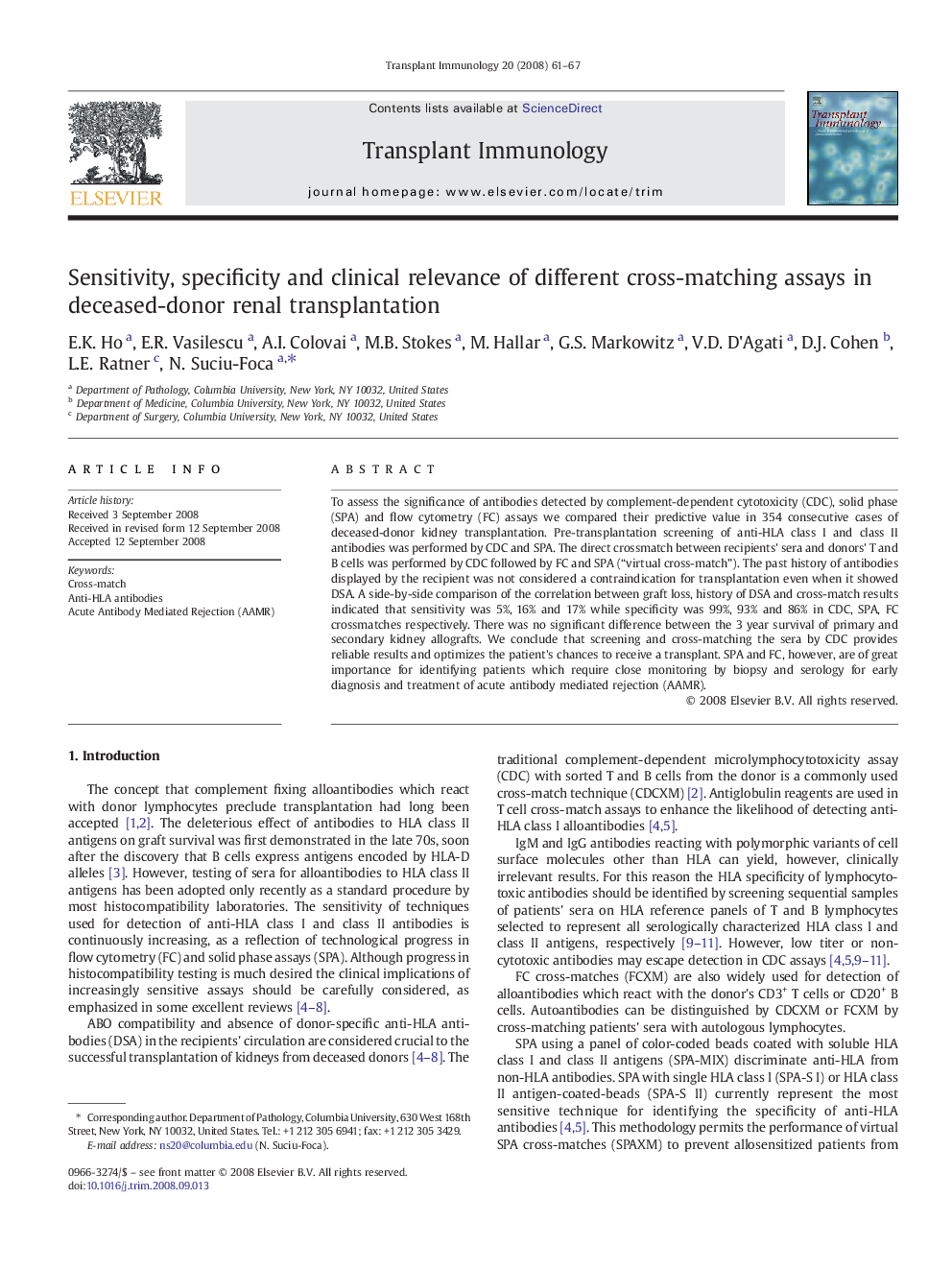| Article ID | Journal | Published Year | Pages | File Type |
|---|---|---|---|---|
| 3392429 | Transplant Immunology | 2008 | 7 Pages |
To assess the significance of antibodies detected by complement-dependent cytotoxicity (CDC), solid phase (SPA) and flow cytometry (FC) assays we compared their predictive value in 354 consecutive cases of deceased-donor kidney transplantation. Pre-transplantation screening of anti-HLA class I and class II antibodies was performed by CDC and SPA. The direct crossmatch between recipients' sera and donors' T and B cells was performed by CDC followed by FC and SPA (“virtual cross-match”). The past history of antibodies displayed by the recipient was not considered a contraindication for transplantation even when it showed DSA. A side-by-side comparison of the correlation between graft loss, history of DSA and cross-match results indicated that sensitivity was 5%, 16% and 17% while specificity was 99%, 93% and 86% in CDC, SPA, FC crossmatches respectively. There was no significant difference between the 3 year survival of primary and secondary kidney allografts. We conclude that screening and cross-matching the sera by CDC provides reliable results and optimizes the patient's chances to receive a transplant. SPA and FC, however, are of great importance for identifying patients which require close monitoring by biopsy and serology for early diagnosis and treatment of acute antibody mediated rejection (AAMR).
